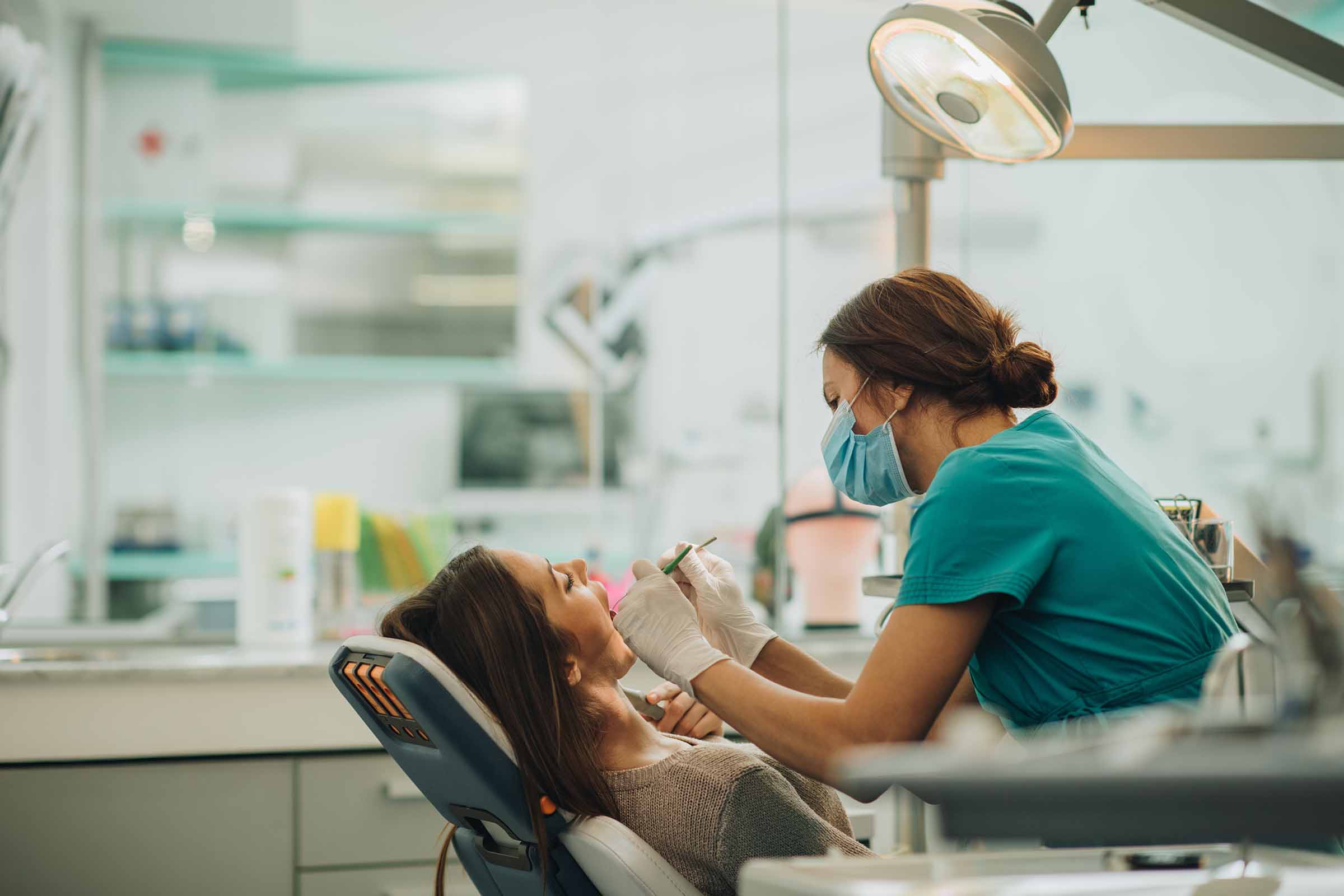Browsing Dental Emergency Situations: What to Do and Not to Do in Critical Situations
When faced with dental emergency situations, the ability to respond suitably can be important in protecting against further issues and guaranteeing the ideal feasible outcome. Understanding what actions to take and what activities to stay clear of can make a substantial difference in important scenarios involving oral problems (emergency dentist newport). From toothaches to knocked-out teeth, busted oral fillings, jaw injuries, and dental blood loss, each scenario demands a particular technique that can affect both short-term and long-term dental health and wellness. Recognizing the do's and do n'ts in these defining moments can be the key to protecting your dental wellness.
Immediate Actions for Toothaches
Salt water works by aiding to minimize bacteria in the mouth, which can contribute to the pain and swelling linked with a toothache. It likewise assists to draw out any kind of debris or pus that might be existing, offering a comforting impact on the aggravated cells.
Along with washing with salt water, over the counter discomfort drugs such as ibuprofen can be required to assist handle the discomfort. It is essential to adhere to the suggested dosage guidelines and seek advice from a doctor if the pain lingers or worsens. Stay clear of positioning aspirin directly on the tooth or gums, as this can result in chemical burns.
If the toothache lingers or is accompanied by other signs such as high temperature, swelling, or problem breathing, seek prompt dental like attend to the underlying reason for the discomfort. Early treatment can assist avoid even more difficulties and alleviate discomfort.
Taking Care Of Knocked-Out Teeth
When handling knocked-out teeth, instant action is vital to raise the opportunities of effective reimplantation. It is necessary to manage it properly to maintain its feasibility for reattachment if a tooth is totally knocked out. The initial step is to grab the tooth by the crown (the white component) as opposed to the root to stay clear of damaging the fragile cells. It is essential not to touch or scrub the root surface as this can harm the cells needed for reimplantation.

Motivate action and proper handling of a knocked-out tooth can dramatically affect the chances of effective reimplantation, so it is vital to act quickly and suitably in such circumstances.
Taking Care Of Broken Dental Fillings
Correct maintenance and regular dental exams are vital for resolving broken dental fillings without delay and guaranteeing the long life of your dental work. When an oral filling up breaks, it can reveal the internal layers of the tooth to microorganisms, resulting in possible infections and further damage if left untreated. If you experience a busted dental filling, it is critical to contact your dental practitioner right away to set up an appointment for repair.
In the meantime, there are some steps you can take to manage a damaged oral filling at home. Prevent eating on the side of the mouth with the damaged loading to avoid further damages. Wash your mouth with warm deep sea to help clean up the damaged area and minimize any kind of pain. Over the counter oral cement can be utilized as a short-lived that site step to cover the subjected filling and secure the tooth till you can see your dentist.
Bear in mind that a busted oral filling must be resolved immediately to avoid problems and protect the stability of your tooth. Routine oral exams can aid identify and address any type of concerns with your dental fillings prior to they intensify right into even more substantial troubles.

Managing Jaw Injuries
In cases of jaw injuries, swift and suitable administration is essential to reduce pain and avoid further problems. Jaw injuries can arise from numerous reasons such as injury, mishaps, or oral procedures. When faced with a suspected jaw injury, it is important to seek instant clinical interest from a healthcare professional or visit the emergency clinic.
In the interim before obtaining specialist care, there are a few actions that can be taken to manage jaw injuries. To start with, applying a chilly compress to the afflicted area can aid minimize swelling and reduce pain. It is essential to prevent moving the jaw exceedingly and to refrain from eating hard or chewy foods that can worsen the injury. Furthermore, over the counter pain medicine can be taken to take care of discomfort momentarily.
Moreover, if there is bleeding connected with the jaw injury, mild stress can click for info be applied making use of a tidy cloth to assist control the bleeding. It is vital to remember that these are short-term procedures, and punctual evaluation by a healthcare supplier is essential to examine the degree of the injury and figure out the appropriate course of treatment - emergency dentist newport.
How to Reply To Dental Bleeding
Complying with the monitoring of jaw injuries, addressing oral blood loss quickly is necessary in making certain correct care and recovery. Dental blood loss can arise from numerous reasons, such as injury, dental treatments, or underlying clinical problems. When confronted with dental bleeding, it is critical to continue to be tranquil and take prompt activity to regulate the situation.
To respond successfully to dental blood loss, start by delicately washing your mouth with a mild deep sea service to clean the location and eliminate any blood embolisms. If the blood loss persists or is extreme, look for specialist dental treatment immediately.

Verdict
To conclude, it is essential to act promptly and properly when faced with oral emergencies. Immediate actions for toothaches, dealing with knocked-out teeth, dealing with damaged dental fillings, handling jaw injuries, and responding to dental blood loss are vital actions to ensure appropriate care and protect against further issues. Remember to seek specialist help as quickly as feasible to resolve any oral emergency situation efficiently and successfully.
From toothaches to knocked-out teeth, broken oral fillings, jaw injuries, and oral blood loss, each scenario demands a certain approach that can affect both lasting and temporary oral health and wellness. If this is not feasible, save the tooth in a container of milk or the person's saliva to keep it damp while looking for prompt dental care.
Appropriate upkeep and routine oral exams are crucial for addressing broken dental fillings quickly and guaranteeing the durability of your dental work. Non-prescription oral concrete can be utilized as a momentary procedure to cover the subjected dental filling and secure the tooth up until you can see your dental practitioner.
Immediate activities for toothaches, taking care of knocked-out teeth, dealing with busted oral fillings, handling jaw injuries, and responding to oral bleeding are vital actions to a knockout post make certain correct treatment and stop additional problems.